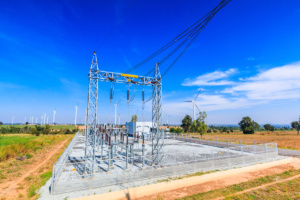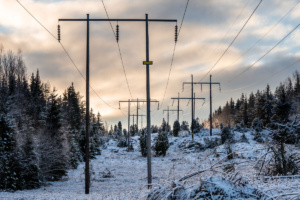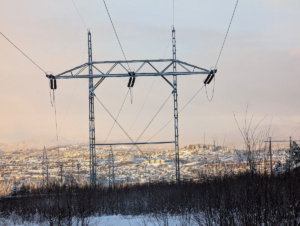The European Heat Pump Summit is a significant event for professionals in the heating and cooling industry, providing insights into the latest market trends and technologies. During the summit, various discussions and presentations shed light on the future of heat pumps and the challenges they face. In this blog post, we’ll explore some key takeaways from the summit. They can be broken down as followed:
- In the heat pump market, there is great uncertainty about the choice of refrigerant.
- But there is a trend of using natural refrigerants. Especially propane (R290) is used for residential heat pumps.
- Heat pumps, also residential heat pumps, with a smart or AI-based control will have an important role in grid stabilisation. Coupled with thermal storage, heating loads can be shifted towards times with low electricity demands. Here, the thermal mass of buildings can be used as storage.
- Heat pumps gained social acceptance and are finally politically recognised and supported for decarbonising heating combined with renewable electricity.
- Noise pollution, safety, and reliability, especially in terms of thermal comfort are essential for residential heat pumps.
- Some high-temperature heat pumps reached Technology Readiness Levels (TRL) 8 and 9.
Uncertainty Regarding Working Fluids
One of the central topics of the discussion at the summit was the uncertainty regarding the working fluids used in heat pumps.
Within the history of heat pumps and refrigeration, several transitions of working fluids took place. Currently, a phase out of hydrofluorocarbons (HFCs) is taking place because of their high global warming potential, which led to the rise of hydrofluoroolefins (HFOs).
In February 2023, the European Chemical Agency, supported by several market dominating European countries, published a proposal for a European ban of PFAS that will affect many widely-used HFOs. Chemical companies and heat pump providers with HFO-based portfolios are strongly lobbying in favour of HFOs and trying to convince decision makers of their positive sides. Here, the arguments of the uncertainty of the long-term effects and of good heat-pumping-performances are used. But do we want to find out the long-term effects the hard way when there are, already now, good and proven alternatives?
Natural working fluids are the way to go forward. Many industry players have realised this and are promoting propane (R290), especially for residential heating applications. Although the gas burner is still the standard in heating technology for many people, safety concerns, in the context of burning gas, remain a significant issue in heat pumps. This is the reason for the trend of lowering the refrigerant charge and using multiple units. Good engineering and high safety standards reduce that risk.
Grid Stabilisation with Smart Heat Pumps
Heat pumps play a vital role in decarbonising heating, assuming a supply of green electricity. However, the variability of renewable energies poses challenges. The solution lies in electricity grid stabilisation through sector coupling and storing of energy. Similar to batteries in electric cars, which couple electricity and transport, heat pumps couple electricity and heat and can be operated in combination with a thermal energy storage system in such a way that they reduce the load on the electricity grid.
Heat pumps, both district heating and residential units, can contribute to grid stabilisation when combined with thermal energy storage. Here, smart operation and predictive models are necessary to shift the heating loads to times with electricity overproduction, enabling a flattening of peak loads. The thermal mass of buildings provides sensible heat storage. Ongoing research is aiming for this operation application within the boundaries of our thermal comfort zone. This is a balancing act between enabling energy flexibility and maintaining reliability.
Potential solutions involve predictive models, artificial intelligence, the Internet of Things, and standardised communication protocols to streamline control and ensure efficient operation.
However, several challenges must be overcome, including user acceptance of external control, the external control itself, long-term operation, and interoperability among different providers.
Social Acceptance and Sustainability of Heat Pumps
Heat pumps have gained social acceptance due to their trustworthiness and their role in decarbonising heating. However, this image needs to remain. Reliability, thermal comfort, minimal noise, safety and sustainability are continuously key factors, and it is crucial for the industry to maintain its commitment to them.
Using a working fluid that turns out to be harmful to humans and the environment or a bad control strategy that leads to operation out of our comfort zones can tarnish this image and disrupt positive market trends.
High-Temperature Heat Pumps for Industrial Applications
High-temperature heat pumps are on the rise, and some have reached technology readiness levels 8 and 9, which means they are ready (or nearly ready) to be deployed. Demonstration projects have shown their capabilities, proving that even if there is a risk of interference with industrial production processes, these are reliably supplied with heat.
The industry faces a choice between plug-and-play solutions and customised high-temperature heat pumps, each with its advantages and challenges. CAPEX prognoses, especially for the latter, are a challenge and have a major influence on investment decisions, thus affecting heat pumping projects.
The working fluid topic is also present around high-temperature heat pumps.

Heat Pump Research Focus
The European Heat Pump Summit was followed by the National Experts’ Meeting of the Heat Pumping Technologies (HPT) Technology Collaboration Programme (TCP), organised by the International Energy Agency (IEA). This is an expert workshop aiming to set the direction of upcoming international research projects. Ideas under the following topics are currently taken forward:
- Heat Pumps enabling flexibility and sector coupling.
- Enhanced, optimised, and minimised components and materials for heat pumps.
- High temperature heat pumps.
- Advanced vapor-compression and non-vapor-compression technologies for heating, cooling and refrigeration.
- Optimal heat pump design and operation for a broader acceptance.









Comments
No comments yet. Be the first to comment!